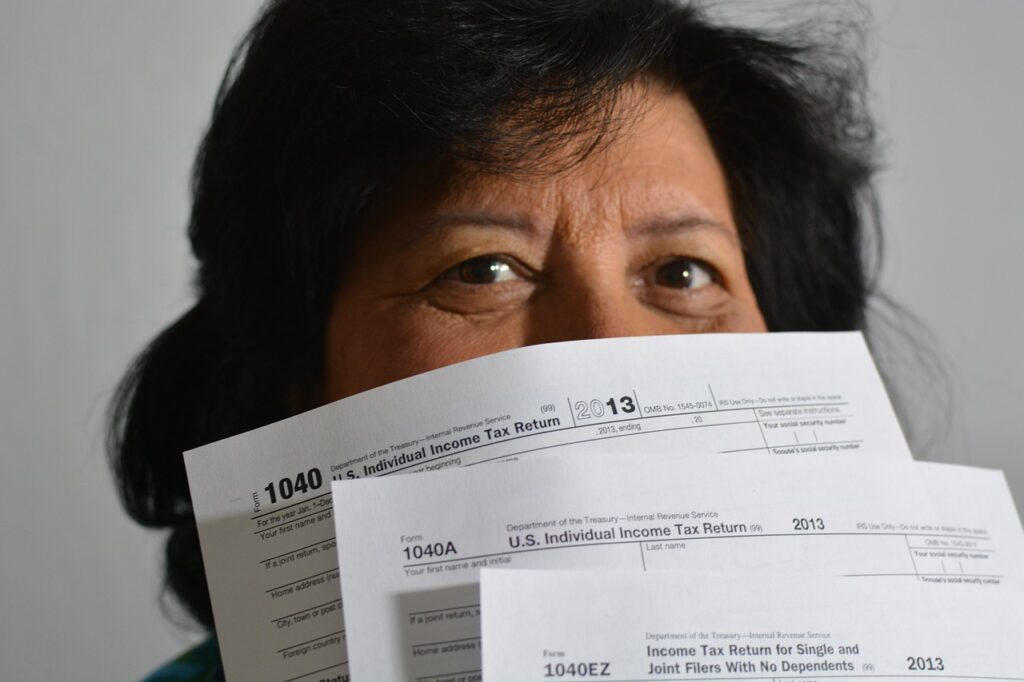
As we approach and enter the golden years of retirement, a common and often pressing concern for many Americans is the looming question of taxes. While taxes are an undeniable necessity, fueling everything from our schools and courts to essential infrastructure, the desire to minimize one’s tax burden, especially on hard-earned retirement income, is completely understandable. It’s a pursuit of financial peace of mind, ensuring that the fruits of decades of labor can truly provide the comfort and security they were intended for.
Good news abounds for those looking to maximize their retirement savings, particularly when it comes to Social Security benefits. A remarkable 41 states, alongside the District of Columbia, have made the commendable decision not to tax Social Security benefits. This is a significant improvement from just a decade ago, when only 27 states offered such relief. This growing trend reflects a deeper understanding of the financial pressures faced by retirees, with states like Nebraska and Missouri recently joining the ranks of non-taxing jurisdictions, providing a welcome boost to retirees’ monthly income.
Understanding these state-specific tax policies is more crucial than ever, as where you choose to live can dramatically impact how much of your Social Security check you actually get to keep. While federal taxes on Social Security benefits might still apply for some, the elimination of state-level taxation is a substantial win. Join us as we explore the diverse tax landscapes of these retiree-friendly states, focusing on how their policies can genuinely save you money and help you retire with greater confidence. We’ll uncover not just the absence of Social Security taxes, but also other vital tax considerations for each state, offering a clearer picture for your retirement planning.

1. **Alabama**Alabama proudly stands as a tax-friendly destination for retirees, earning a positive rating due to its overall low tax burden. For those receiving Social Security benefits, the Yellowhammer State offers a significant advantage by completely exempting these benefits from state income tax. This means that a crucial portion of your retirement income remains untouched by state levies, allowing you to retain more of what you’ve earned throughout your working life.
Beyond Social Security, Alabama’s tax structure further enhances its appeal. The state boasts no estate tax or inheritance tax, which provides peace of mind for those looking to pass on their assets to future generations without additional state deductions. The state income tax range is also relatively low, with the highest income tax rate capped at just 5%. This can be particularly beneficial for retirees with other forms of taxable income, as a lower overall income tax rate helps preserve more of their total retirement earnings.
Property taxes in Alabama are notably among the lowest in the nation, presenting another substantial financial benefit for homeowners. The median property tax rate is an appealing $390 for every $100,000 in assessed home value. While the average combined state and local sales tax rate is 9.24%, this is often offset by the considerable savings in other tax categories, making Alabama an attractive choice for retirees prioritizing a lower cost of living and a friendlier tax environment for their Social Security and other retirement income.
Read more about: Why 2025 Compact Trucks Are Igniting Urban Interest: A Deep Dive for Savvy Buyers

2. **Alaska**Alaska presents a unique and somewhat mixed tax picture for retirees, but it is unequivocally one of the states that does not tax Social Security benefits. This fundamental exemption is a powerful draw for individuals seeking to maximize their monthly Social Security checks without state intervention. The absence of a state income tax altogether further solidifies Alaska’s position as a state where many forms of retirement income, including pensions, can largely escape taxation.
However, prospective retirees should be aware of other aspects of Alaska’s tax system that contribute to its “mixed rating” for tax-friendliness. The state is known for its notoriously high property tax rates, which can significantly impact homeowners’ budgets. Additionally, Alaska charges a comparatively high tax rate for alcoholic beverages. These factors necessitate a comprehensive review of one’s personal spending habits and housing situation to determine the true financial benefit of residing there.
Despite these considerations, Alaska’s tax environment can be quite appealing for certain retirees. The lack of state income tax, combined with an average state and local sales tax rate of just 1.76%, can lead to considerable savings for many. Furthermore, Alaska offers a unique benefit to its residents: a substantial oil wealth trust fund payout, which in 2022 amounted to $3,284 per resident for those who had lived in the state for a year or longer. This annual dividend can provide a significant boost to a retiree’s income, making it a compelling, albeit distinctive, retirement destination.
Read more about: Vanishing Legacies: An Expert’s Guide to 14 Iconic Concepts of Extinction in Earth’s History

3. **Arizona**Arizona shines as a highly tax-friendly state, especially for retirees, thanks to its comprehensive approach to easing the financial burden on its older residents. The Grand Canyon State firmly states that it does not tax Social Security benefits, ensuring that this vital source of income remains fully intact at the state level. This exemption is a major draw for individuals planning their retirement, offering assurance that a significant portion of their financial security will not be diminished by state levies.
Beyond Social Security, Arizona extends its tax-friendliness across several other categories important to retirees. The state has no estate tax, providing clarity and simplicity when it comes to wealth transfer. Furthermore, military retirement income is entirely tax-free, which is a considerable advantage for veterans choosing Arizona as their retirement home. This multi-faceted approach to tax relief underscores Arizona’s commitment to supporting its senior population.
The state income tax rates in Arizona are also quite favorable, starting at just 2.55% on taxable income up to $28,653 for single filers and $57,305 for married joint filers. For income exceeding these amounts, the rate is a still modest 2.98% for both single and joint-married filers. These relatively low income tax rates, combined with the complete exemption of Social Security benefits, make Arizona an economically appealing choice. Its warm climate and lack of Social Security tax make it an attractive option for a comfortable and financially secure retirement.
Read more about: Unmasking the Shadows: How Systemic Vulnerabilities Unlocked Backdoors into the Pentagon and U.S. Government Networks

4. **Arkansas**Arkansas earns a commendable tax-friendly rating for retirees, offering a suite of benefits designed to lighten the financial load during their golden years. Crucially, the state does not levy a Social Security tax, allowing beneficiaries to retain 100% of their state-eligible Social Security payments. This exemption is a cornerstone of its retiree-friendly policies, providing direct financial relief to those who depend on these benefits for their daily living expenses.
In addition to the Social Security exemption, Arkansas extends its generosity to other forms of retirement income. Taxpayers are permitted to exempt as much as $6,000 of their retirement income from their state income taxes, which can include income from pensions and other sources. This provision, coupled with no estate tax or a tax on military retirement pay, creates a robust framework of tax advantages for a broad spectrum of retirees. It’s a state that clearly values the financial well-being of its senior citizens.
Property taxes in Arkansas are notably low when compared to many other states, further contributing to its appeal for homeowners in retirement. This can lead to substantial annual savings on housing costs, an important consideration for fixed-income retirees. However, it is important to note that Arkansas does have some rather high sales taxes. Therefore, while the state is generous with retirement income exemptions, individuals should consider their spending habits to get a complete picture of their potential overall tax burden. Still, the core benefit of tax-free Social Security is a significant draw.
Read more about: Unpacking the Power: How Celebrity Endorsements Shape Your Everyday Purchases

5. **Florida**When discussing states that are exceptionally friendly to retirees from a tax perspective, Florida invariably comes to mind. The Sunshine State stands out as one of the few states that does not impose any individual income tax whatsoever. This overarching policy means that not only are Social Security benefits completely exempt from state taxation, but virtually all other forms of retirement income, including pensions, 401(k) distributions, and IRA withdrawals, also escape state income tax. This creates an incredibly advantageous environment for maximizing retirement income.
The absence of a state income tax simplifies financial planning considerably, removing a significant layer of complexity that retirees in other states often face. For Social Security recipients, this means a straightforward experience: what they receive from the federal government is what they keep, at least at the state level. This direct financial benefit, combined with Florida’s renowned warm climate and vibrant retirement communities, makes it a top choice for many looking to stretch their retirement dollars further.
While Florida offers undeniable income tax advantages, prospective residents should always consider the state’s total tax picture. Like all states that forgo income taxes, Florida generates revenue through other means, such as sales taxes and property taxes. However, for those primarily concerned with the taxation of their Social Security and other retirement income, Florida presents a compelling case. Its commitment to leaving income untaxed at the state level makes it a beacon for financial freedom in retirement, allowing more of your nest egg to remain in your pocket.
Read more about: Beyond the Red Carpet: Unveiling the Must-Visit Celebrity-Owned Restaurants Making Waves in 2025

6. **Illinois**Illinois has been consistently recognized as a particularly tax-friendly state for retirees, and a major reason for this distinction is its firm stance on Social Security benefits. The Prairie State does not tax Social Security income, ensuring that this essential component of a retiree’s financial plan remains untouched by state levies. This policy is a crucial advantage, providing a predictable and stable income stream for seniors, free from state-level deductions.
While the context highlights Illinois’ general tax-friendliness for retirees, it is essential to understand the broader implications of not taxing Social Security. For many, Social Security benefits form a significant portion of their retirement income, especially for the 40% of Americans aged 65 and older who rely on it for at least half their income. By exempting these benefits, Illinois effectively boosts the purchasing power and financial security of its senior residents, contributing to a more comfortable retirement.
When evaluating Illinois as a retirement destination, it’s important to consider other tax elements as well. Though specific details beyond the Social Security exemption are not provided here, the overall designation as “tax-friendly” suggests a supportive environment. The benefit of not taxing Social Security extends beyond mere numbers; it offers peace of mind. Retirees in Illinois can rest assured that their Social Security checks will not be reduced by state income tax, allowing them to better manage their budgets and enjoy their retirement years without unexpected financial drains from state taxes.
Read more about: Beyond the Red Carpet: Unveiling the Must-Visit Celebrity-Owned Restaurants Making Waves in 2025

7. **Iowa**Iowa is another state that has garnered a reputation for being particularly tax-friendly for retirees, primarily due to its non-taxation of Social Security benefits. For individuals who have spent their working lives contributing to Social Security, knowing that their benefits will not be subjected to state income tax is a significant relief. This policy decision by Iowa demonstrates a clear effort to support its senior population, enabling them to retain more of their federal benefits to cover living expenses and pursue retirement aspirations.
The state’s commitment to protecting retirement income is a key factor for many considering where to settle down in their later years. By exempting Social Security, Iowa helps to ensure that retirees’ fixed incomes go further, mitigating some of the financial pressures that can arise during retirement. This is especially vital given that Social Security plays a pivotal role in the financial security of a large segment of the elderly population.
While the context specifically highlights Iowa’s tax-friendly nature regarding Social Security, understanding the full scope of a state’s tax environment is always prudent. Even without specific details on other tax categories for Iowa, the general designation implies a favorable overall climate for seniors. The assurance that Social Security benefits are untouched at the state level provides a solid foundation for retirement planning, allowing Iowans to have greater clarity and control over their income. This policy helps foster a more predictable and financially stable environment for retired individuals in the state.
Continuing our journey through the states that offer significant financial relief to retirees by not taxing Social Security benefits, we delve into additional jurisdictions. As previously noted, the decision of where to reside in retirement can profoundly impact your financial well-being, stretching your hard-earned benefits further. These states demonstrate a commitment to easing the tax burden on their senior populations, though a holistic view of their tax structure is always advised.
Read more about: The Cereal Crunch: 12 Breakfast Staples Losing Their Luster as Parents Demand Less Sugar and More Nutrition

8. **Kansas**Kansas has made a significant and welcome change for its retirees, having recently ceased taxing Social Security benefits with legislation enacted midway through 2024. This move places Kansas among the growing ranks of states recognizing the importance of preserving retirement income for its senior citizens. For those who depend on Social Security as a cornerstone of their financial security, this exemption provides much-needed relief and predictability.
The elimination of Social Security taxes means that beneficiaries in Kansas can now retain 100% of their state-eligible benefits. This direct financial advantage can lead to substantial annual savings, effectively boosting a retiree’s disposable income. It ensures that a vital component of retirement planning remains secure from state-level deductions, allowing retirees to better manage their budgets and living expenses.
While the primary focus is on Social Security, potential retirees should also remember the broader tax landscape. As with any state, evaluating Kansas for retirement involves considering other tax categories such as property and sales taxes, along with overall cost of living. This comprehensive approach helps individuals gauge the true financial benefits and make informed decisions about their retirement destination.
Read more about: Unpacking the Power: How Celebrity Endorsements Shape Your Everyday Purchases

9. **Missouri**Missouri stands out as another state that has recently joined the non-taxing club, having ceased to tax Social Security benefits in 2024. This legislative change is a substantial boon for the Show-Me State’s senior population, allowing them to keep more of their retirement income. Such proactive measures by states reflect a positive trend towards supporting the financial stability of retirees.
The impact of Missouri’s decision is considerable, with retirees in the state collectively looking at an annual saving of around $309 million. This impressive figure underscores the tangible financial relief provided to individual Social Security recipients. For many, this translates into a significant boost to their purchasing power and a greater sense of security in their golden years.
This move reinforces Missouri’s appeal as a retirement destination, especially for those prioritizing tax-efficient income streams. However, as always, a complete financial assessment should encompass all aspects of state taxation. While Social Security is now exempt, understanding property taxes, sales taxes, and other potential levies is crucial for a comprehensive retirement plan.
Read more about: The 2025 Chevy Corvette Lineup: A Deep Dive into How the New Models Elevate America’s Favorite Sports Car

10. **Nebraska**Nebraska also recently joined the increasing number of states that do not tax Social Security benefits, making this crucial change in 2024. This progressive step by the Cornhusker State provides considerable financial advantages for its retired residents. It directly addresses a key concern for many seniors, ensuring that their Social Security checks remain intact at the state level.
The financial relief offered by Nebraska’s policy change is significant. Retirees in Nebraska are poised to see collective annual savings of about $17 million. While this figure represents a statewide total, it translates into meaningful individual savings that can make a real difference in a retiree’s monthly budget. This allows seniors to allocate more funds towards their living expenses, healthcare, or leisure activities.
For those considering retirement in Nebraska, the exemption of Social Security benefits is a powerful incentive. It adds to the overall financial appeal of the state, but it is wise to consider the broader tax environment. Looking at the total tax picture, including property and sales taxes, will ensure that retirees can maximize their financial well-being throughout their retirement years.
Read more about: Navigating Market Volatility: Identifying Risky Platforms and Building a Resilient Portfolio Before the Next Crash

11. **Nevada**Nevada presents an incredibly appealing tax landscape for retirees, distinguishing itself as one of the states that imposes no individual income tax whatsoever. This overarching policy means that not only are Social Security benefits completely exempt from state taxation, but virtually all other forms of retirement income, including pensions and 401(k) distributions, also escape state income tax. This creates an environment of remarkable financial freedom for seniors.
The absence of state income tax in Nevada simplifies financial planning considerably, removing a significant layer of tax complexity that retirees in other states often encounter. For Social Security recipients, this means a straightforward experience: the benefits they receive from the federal government are what they keep at the state level. This contributes to Nevada’s reputation for having some of the lowest tax rates in the nation.
However, prospective residents should be aware of the state’s approach to generating revenue elsewhere. While income is untaxed, Nevada has a comparatively high sales tax rate, averaging 6.85%. This means that those with significant spending habits might see some of their savings diminished through consumption taxes. Therefore, evaluating personal spending alongside the income tax advantages is key to a full financial picture.
Read more about: Is the 2025 Subaru Forester the Reliable Family Road Trip Companion You Need?

12. **South Dakota**South Dakota is another gem for retirees, proudly standing among the states that levy no state income tax at all. This highly favorable environment ensures that Social Security benefits are completely free from state taxation, a significant relief for those relying on these funds. The absence of income tax also extends to other forms of retirement income, such as pensions and 401(k) distributions, making it an attractive destination for financial planning.
The state’s commitment to avoiding income taxation means that retirees can maximize their take-home pay from all their retirement sources. This policy fosters a financially stable environment, allowing seniors to retain a greater portion of their wealth. For many, this translates into a more comfortable and secure retirement, free from the complexities of state income tax calculations.
Of course, states must generate revenue to fund public services. While South Dakota forgoes income taxes, residents should still consider other tax categories like property and sales taxes. Understanding the full scope of the state’s tax system, along with the local cost of living, will provide a complete financial picture for those planning their retirement move to this tax-friendly state.
Read more about: The Unsung Heroes: 5 Forgotten Truck Models That Are Goldmines for Off-Road Builders Today

13. **Texas**Texas is widely known and applauded by residents for not charging any state income tax whatsoever, making it a highly favorable state for retirees. This comprehensive exemption means that Social Security benefits are completely untaxed at the state level, alongside virtually all other forms of retirement income like pensions and 401(k) withdrawals. It ensures that retirees retain more of their hard-earned money.
The sheer volume of retirement income that remains untouched by state taxes in Texas provides a compelling argument for its appeal. This allows retirees to plan with greater certainty and enjoy a higher disposable income. The Lone Star State offers a clear and straightforward tax environment when it comes to income, a major draw for those looking to maximize their retirement savings.
However, a closer look reveals how the state generates its necessary revenue. Texas collects funds through avenues such as motor fuel taxes and “sin taxes” on products like tobacco, mixed beverages, and slot machines. While these indirect taxes might not impact everyone equally, prospective retirees should consider their spending habits and how these taxes might affect their overall budget. It is always wise to assess the full tax burden, not just income-based levies.
Read more about: The Lost Arts of the Pit: 18 Traditional Barbecue Techniques Every Home Cook Should Master

14. **Washington**The Evergreen State, Washington, offers a robust tax advantage for retirees by completely exempting Social Security benefits from state taxation. More broadly, Washington is one of the states that does not impose any individual income tax. This significant policy means that pensions, 401(k) distributions, and IRA withdrawals also escape state income tax, making it a very appealing environment for retirement savings.
For Social Security recipients, the absence of a state income tax means that their benefits are not diminished by state levies, ensuring they receive their full entitlement. This provides a clear financial benefit and reduces complexity in retirement planning. It empowers retirees to maintain more control over their financial resources throughout their golden years.
Naturally, states without an income tax rely on other revenue streams. While Washington’s income tax situation is highly favorable, individuals should consider other taxes such as property taxes and sales taxes, which contribute to the state’s funding. A careful review of these factors, in conjunction with the local cost of living, is essential for a thorough financial assessment before making a retirement move.
Read more about: Beyond Expectations: How the 2025 Kia Telluride Redefines Value and Challenges Luxury SUV Standards

15. **Wyoming**Wyoming rounds out our list of states that offer significant tax advantages for retirees, primarily by not taxing Social Security benefits. What’s more, the Cowboy State is one of the few that imposes no state income tax at all. This creates an incredibly favorable environment where essentially all forms of retirement income, including pensions, 401(k)s, and IRAs, are exempt from state income taxes.
The complete absence of state income tax simplifies financial planning considerably, ensuring that retirees can retain the maximum possible amount from their Social Security checks and other retirement accounts. This makes Wyoming an exceptionally attractive option for individuals prioritizing financial efficiency and seeking to stretch their retirement dollars as far as possible.
While the income tax benefits are clear, it is crucial for retirees to consider the overall tax picture, as Wyoming, like all states, must fund its public services. This means examining property tax rates, sales taxes, and other local levies to understand the full financial commitment. By taking a holistic view, retirees can determine if Wyoming aligns with their overall financial goals and lifestyle preferences for a truly comfortable and secure retirement.
Read more about: Tonight’s Secret Weapon: 12 Overlooked Budget Whiskeys That Are Total Game-Changers for Your Cocktails!
As we conclude our comprehensive look at states that do not tax Social Security benefits, it’s clear that the landscape for retirees is increasingly favorable. The growing number of states choosing to exempt these vital benefits offers significant financial relief and peace of mind. While federal taxes may still apply for some, the state-level exemptions mean more money remains in your pocket, allowing you to enjoy your golden years with greater financial stability. Remember, sound retirement planning involves looking beyond just Social Security taxes to the entire tax picture of a state, considering your unique financial situation and lifestyle to find the perfect fit for your retirement dreams. The power to maximize your retirement income is truly in your hands, guided by informed choices about where you choose to live.



